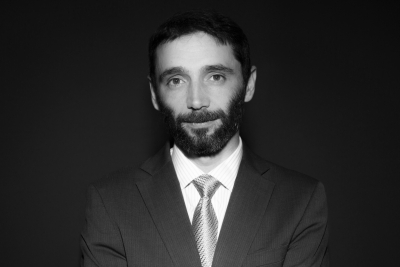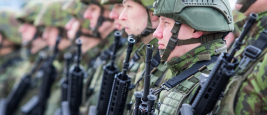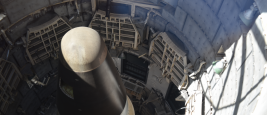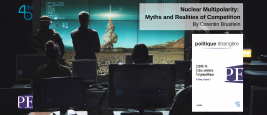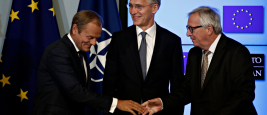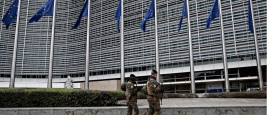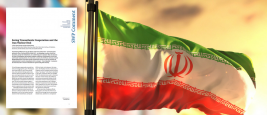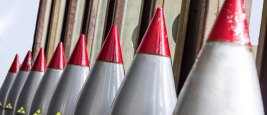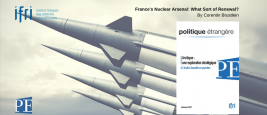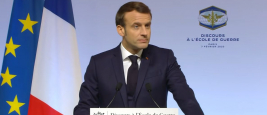
Corentin BRUSTLEIN
Former Director of Ifri's Security Studies Center
Research Interests:
- French and U.S. defense policies
- Nuclear policies, proliferation, arms control and disarmament
- Future conflict
- Military technologies and capabilities
Dr. Corentin Brustlein was the Director of the Security Studies Center at the French Institute of International Relations (Ifri) from 2015 to 2021. Prior to assuming this role in 2015, he had been the head of the institute’s Deterrence and Proliferation program. His areas of expertise include nuclear and conventional deterrence, strategic stability and arms control, U.S. and French defense policies, and force projection and conventional warfare. At Ifri, he was also the editor of the Proliferation Papers, he contributed from 2008 onwards to the various activities conducted by the joint civil-military research unit established at Ifri (LRD), and bloged at Ultima Ratio.
Dr. Brustlein holds a Ph.D. in political science from the Jean Moulin University of Lyon, and has taught strategic studies, strategic analysis, and international relations theory at Sciences Po Paris, the Jean Moulin University of Lyon, and other academic institutions.
To what extent has the COVID-19 pandemic affected defense priorities across Europe?
The topic of nuclear risk reduction has gained momentum in the international security debate among policymakers, nongovernmental organizations, and experts.
The term “arms race” does not accurately reflect the events of the Cold War, let alone the multipolar logics that have followed it.
Over the past five years, several political and security developments have made it increasingly necessary to look at European Union (EU) / North Atlantic Treaty Organization (NATO) relations through a different lens.
For decades, Europe has been trying to chart a path away from the military competition and strategic rivalries that brought it to ruins so many times in history.
The instruments of cooperative security created during and since the Cold War to foster mutual confidence and reduce the risks of war, inadvertent escalation, and arms races, in and around Europe, have come under increasing strain.
Transatlantic differences over the future of the Iran nuclear deal – or the Joint Comprehensive Plan of Action (JCPOA) of July 2015 – are damaging a nuclear accord that all parties, except the United States, see as delivering on its purpose. They also increase the risk of Washington and...
The ability to penetrate remote and contested theaters of operation is a crucial asset for any expeditionary military power.
Over the past few years, a debate on possible scenarios of limited nuclear weapons use has surfaced again in the United States. Russian nuclear saber-rattling since 2014 and the growing tensions in the Korean peninsula have led Washington to reassess its own ability to deter, or respond...
Over the course of the next few years, France will have to renew its nuclear arsenal to ensure that it remains a credible dissuasion in the eyes of its potential enemies.
A researcher said that ‘the balance is shifting, including in countries such as Germany’ on the role of nuclear weapons in Europe’s strategic ambitions.
...France, the European Union's sole nuclear power since Britain's exit from the bloc, will unveil Friday how it intends to use its atomic arsenal as a deterrent in an increasingly unstable world.
Do you believe that “the Iranian problem” can be solved by peaceful means?
...



